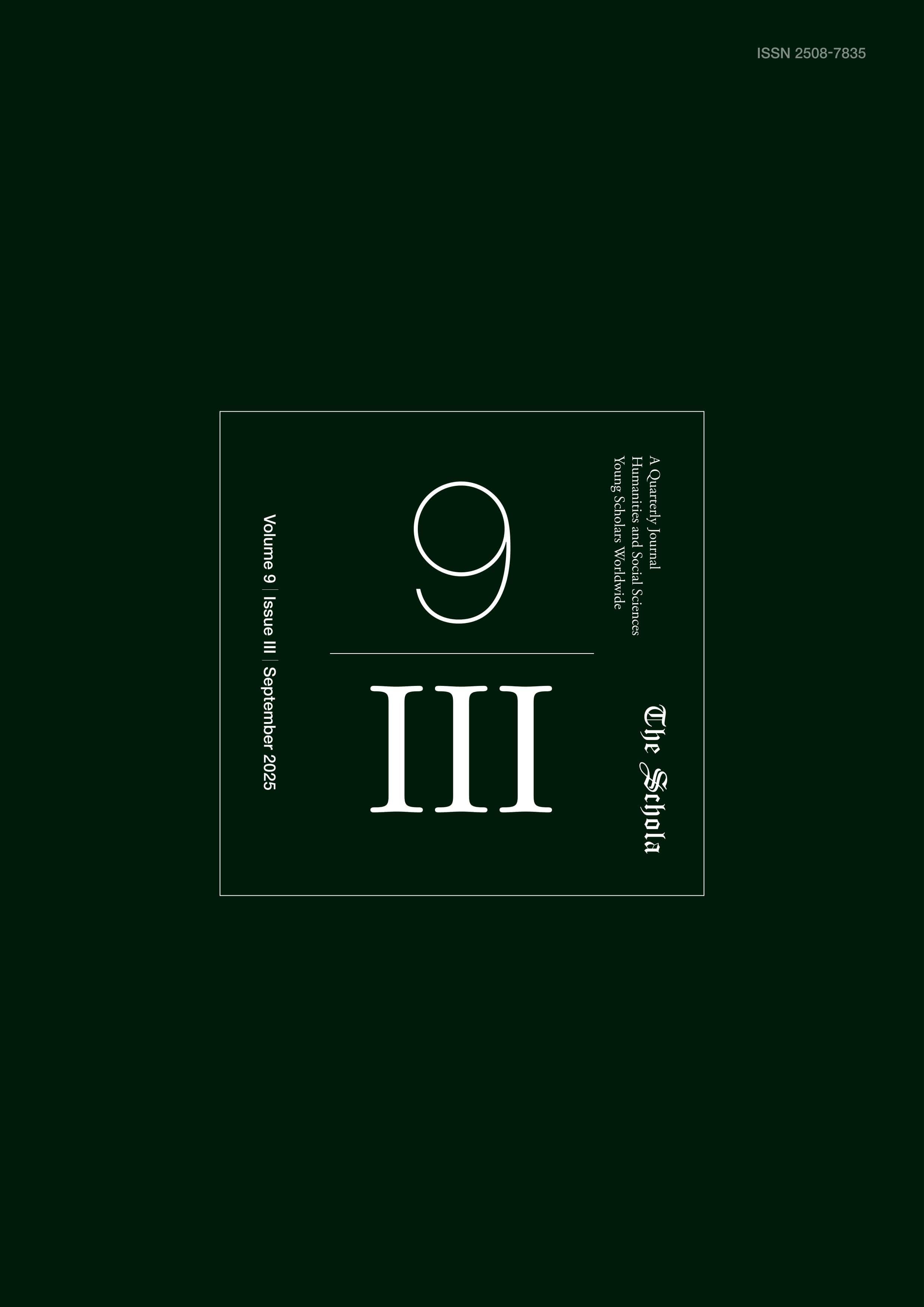Autumn 2025
Read-

-
Virtue and Rhetoric: Rethinking Justice, Persuasion, and Methodology in Plato’s Republic
/ Philosophy
Aayan Mittal ’26
Pine Crest School
Florida, United States
-
Operation Ajax and the United States: Incentives, Actors, and Anti-Communist Foreign Policy
/ International Relations, US History
Peyson Bilimoria ’25
Commonwealth School
Massachusetts, United States
-
Before the Camps: A Sociocultural Analysis of Japanese American Pre-Internment Psychology
/ Sociology
Hayne Kim ’26
The American School in Japan
Chofu, Japan
-
Kent State’s Contested Truth: Nixon’s Cold War Rhetoric and Domestic Control
/ US History, Politics
Bethany Zhao ’26
The College Preparatory School
California, United States
-
La Raza: A Stain on Dominican Racial History
/ Latin American History, Ethnic Studies
Anshul Nadendla ’26
Barrington High School
Illinois, United States
-
Ghost Daughters and Bar Girls: Negotiating Marginal Womanhood in Taiwan
/ Gender Studies, Anthropology
Lian Benz ’26
Avenues The World School
New York, United States
-
Architects of the Right to Life: The Catholic Church’s Enduring Influence on Abortion Policy
/ US History, Public Policy
Brooke Soderbery ’26
Sacred Heart Schools
California, United States
-
Friedrich Engels: The First Marxist
/ History of Philosophy
Taeyoon Song ’26
Brighton College
East Sussex, United Kingdom
-
Art as Praxis: Visualizing and Actualizing Change Through The Great Wall of Los Angeles
/ Art History, Sociology
Nina Zaldivar ’26
Francis W Parker School
Illinois, United States
-
A Habit of Acquiescence: The Roots of Czechoslovakia’s 1938 and 1968 Capitulations
/ European History
Filipp Kvitko ’26
Windermere Preparatory School
Florida, United States
-
The Metamorphosis of Ovid’s Metamorphoses
/ Classics
Yineng Shao ’26
Concord Academy
Massachusetts, United States
-
Partitioned Dreams and Plastic Fantasies: Subaltern Identity in Contemporary Screen Media
/ Film and Media Studies, Cultural Studies
Shiven Jain ’25
Indus International School
Pune, India
Author Spotlights
View all-
Brooke Soderbery
As someone who’s been attending a Catholic school for almost a decade, I’ve always been fascinated by the politics of the Catholic Church. In required religion classes, I’ve often gotten...
Brooke Soderbery
As someone who’s been attending a Catholic school for almost a decade, I’ve always been fascinated by the politics of the Catholic Church. In required religion classes, I’ve often gotten...
-
Lian Benz
While spending 10th grade abroad in Taiwan, I increasingly realized that the nature of womanhood and how feminism was perceived there varied dramatically from what I had gotten accustomed to...
Lian Benz
While spending 10th grade abroad in Taiwan, I increasingly realized that the nature of womanhood and how feminism was perceived there varied dramatically from what I had gotten accustomed to...
-
Filipp Kvitko
To my mind, human history has three inexplicable phenomena that have had the greatest influence on European civilization: the rise of Athenian democracy, the emergence of Renaissance art, and the...
Filipp Kvitko
To my mind, human history has three inexplicable phenomena that have had the greatest influence on European civilization: the rise of Athenian democracy, the emergence of Renaissance art, and the...
Featured Essay
International Relations, US History
Operation Ajax and the United States: Incentives, Actors, and Anti-Communist Foreign Policy
Peyson Bilimoria ’25 | Commonwealth School | Massachusetts, United States
Many historians claim that the principal motives behind the US’s participation in the 1953 Iranian Coup, commonly referred to as Operation Ajax, came from the US’s mid-20th-century anti-Communist agenda. While it is true that the justification for the US’s involvement stemmed from aggressive ideological foreign policy, this synopsis does not paint the entire picture. Throughout his time in control, the overthrown Prime Minister Mohammad Mossaddegh was careful to avoid Communist influence, and long before the coup, the US had had both a political presence in Iran and a strong opposition to Communism. Together, these facts suggest that it was not just the US’s anti-Communist foreign policy and agenda that brought Operation Ajax to life in August of 1953. Rather, using recent declassifications, this paper establishes how, instead of acting as a single cohesive actor motivated solely by a single rationale, the United States’ foreign policy and presence in Iran was composed of multiple uncoordinated entities, and that it was only when these independent and changing agendas and shifts in power aligned in 1953 that Operation Ajax was able to come to fruition. By unpacking the plurality of actors, competing interests, and contingent circumstances that shaped US decisions, this study underscores the need to move beyond simplified narratives of Cold War interventions. The 1953 coup emerged not from a single logic but from the convergence of competing agendas, shifting powers, and complex bureaucratic dynamics, offering a more nuanced view of US foreign policy.
Notable Essays
Selected from the 2024-2025 Collection
-
Understanding the Historical Significance of the GI Bill in Postwar America
Rahul MadgavkarUS History
-
Liberté, Fraternité, Inégalité? The Validation of Grammatical Gender in the French Foreign Service
Camilla ZabikhodjaevaSociolinguistics
-
The Decline of Ecclesiastical Authority in the Italian Healthcare System
Giulia ScolariEuropean History, Public Policy
-
Community, Family, Nation: Confucian Exacerbation of Homophobia in Chinese Queer Literature
Xiaoyao (Marcus) LuGender Studies, Literature, Philosophy
The Breadth of Our Scholarship
-
Philosophy
History: Greco-Roman, US, European, World
Art History
Literature, Literary Theory, Classics
Public Policy
Sociology: Political Sociology, Sociolinguistics
Contents updated periodically.
-
With every new publication, our collections deepen and broaden. Find your next insight among our ever-increasing range of subjects in the humanities and social sciences.
-
Shifting Tides: Politics, Global Order, and Ecological Futures
The study of politics, conflict, and governance that shape the world and the natural environment at national and international levels
Politics, War Studies, IR, Environmental Studies
-
The Cultural Fabric: Shaping Art, Culture, and Public Imagination
The exploration of creative expressions and the policies and programs that shape cultural activities
Cultural Policy, Film & Media Studies, Musicology
-
Constructing Realities: Identity, Gender, and the Human Psyche
The investigation of cultural practices, beliefs, and social structures that influence and are influenced by human societies
American Studies, Gender Studies, Anthropology, Psychology

